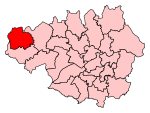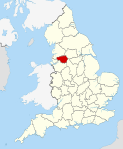DW Stadium

The DW Stadium is a stadium in Robin Park, in Wigan, within the Metropolitan Borough of Wigan, Greater Manchester, England. The ground is owned and managed by Wigan Football Company Limited, which is 85% owned by Wigan Athletic and 15% owned by Wigan local authority. It is used by Wigan Athletic football club and Wigan Warriors rugby league club, the rugby league club having a 50 years lease on tenancy to play games at the stadium. Built and opened in 1999, it is named after its main sponsor, DW Sports Fitness. In UEFA matches, it is called Wigan Athletic Stadium due to UEFA regulations on sponsorship.The stadium architect was Alfred McAlpine. Wigan Athletic and Wigan Warriors moved into it from their long-term homes of Springfield Park and Central Park respectively. International rugby league matches have also taken place at the venue. Its current capacity is 25,138—seated in four single-tier stands—and its record attendance was on 11 May 2008 when 25,133 people watched Wigan Athletic play Manchester United in the final match of the 2007–08 Premier League season.
Excerpt from the Wikipedia article DW Stadium (License: CC BY-SA 3.0, Authors, Images).DW Stadium
Loire Drive,
Geographical coordinates (GPS) Address External links Nearby Places Show on map
Geographical coordinates (GPS)
| Latitude | Longitude |
|---|---|
| N 53.547777777778 ° | E -2.6538888888889 ° |
Address
DW Stadium
Loire Drive
WN5 0UZ , Newtown
England, United Kingdom
Open on Google Maps







